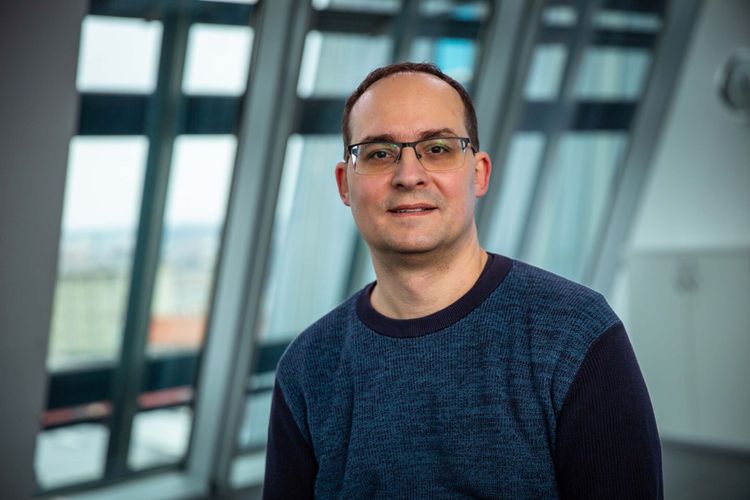What did you study – and where?
I received both my undergraduate and PhD degrees in computer science from Charles University in Prague. I have always been fascinated by how deeply modern computer science relies on different mathematical tools. Over time, my research drifted from computer science more towards mathematics, although many of the topics that I focus on today lie at the interface between the two domains.
What have been the most important or recent steps in your career since then?
One of the most important steps in my career was a postdoc at the Georgia Institute of Technology, where I worked under the supervision of Professor Robin Thomas, one of the world’s leading researchers in the field of discrete mathematics. From Robin, I learned the value of having a strong foundation in different areas of mathematics and of having a mind open to learning new topics.
What fascinates you about your field of research and what are your main research interests?
One fascinating aspect of mathematics is its elegant structure, where chaos often conceals deeper patterns waiting to be explored and understood. Much of my own research focuses on developing mathematical models and tools to solve problems in computer science, but I also work on purely mathematical questions. One of my main areas of research is graph theory, which deals with fundamental mathematical concepts for modelling and representing networks – both in algorithm design and as a subject of study in its own right, for example in the context of social networks.
What is your specific research goal at Leipzig University, if any?
I am looking forward to exploring new connections between my research and other areas of mathematics and computer science, in collaboration with my new colleagues at Leipzig University and at the Max Planck Institute for Mathematics in the Sciences. A particular topic that I am eager to gain new insights into is a recent breakthrough concerning models of large sparse networks, which was based on advanced tools from algebra and theoretical computer science. This topic presents an ideal opportunity to combine the complementary expertise of my newly established group and the existing group of Professor Lukasz Grabowski.
Could you outline some key areas you would like to focus on in your teaching?
At the basic undergraduate level, I look forward to teaching subjects related to my expertise, in alignment with the teaching needs of the Institute of Mathematics. At the more advanced level, I would like to help mathematics students discover interesting topics in computer science, and, vice versa, to guide computer science students towards the beauty of advanced mathematics.
Please finish the following sentence: “For me, Leipzig University is...”
For me, Leipzig University, in conjunction with the Humboldt Professorship, is an opportunity to step out of my research comfort zone and embark on a new research adventure. I came across a quote from another Humboldt Professor, who described the Professorship as a once-in-a-lifetime opportunity after your PhD for doing so, which is indeed the case in my view. I wish to fully utilise this unique opportunity and its strong potential.
Please answer either personally or more generally: What is the discovery, invention or insight that you would most like to see in the next ten years?
Scientific discoveries are fascinating precisely because they are so unpredictable. Thirty years ago, it would have been hard to imagine how much we would become dependent on our cell phones in so many aspects of daily life. Another recent phenomenon is the growing power of social media. Personally, I am quite concerned about some of these developments. I hope that whatever scientific discoveries we may see in the next decade, they will bring more rationality and less polarisation to society than we are experiencing today.
What are your hobbies?
Unfortunately, an academic job does not leave much time for many hobbies. When I do have a spare moment, I enjoy watching a good movie, going for a hike, or visiting a historic place that I have not been to before. If I may recommend a lesser-known movie worth seeing, I would mention a 2022 Hungarian film, A játszma (The Game).
Do you have a motto that helps you through difficult times?
Friends are my main source of energy and support to get through difficult times. But I learned a simple and comforting motto from one of my former PhD students, who happened to be from Brazil, and it works well in many situations: “Something will happen.”


Comments
No comments found!